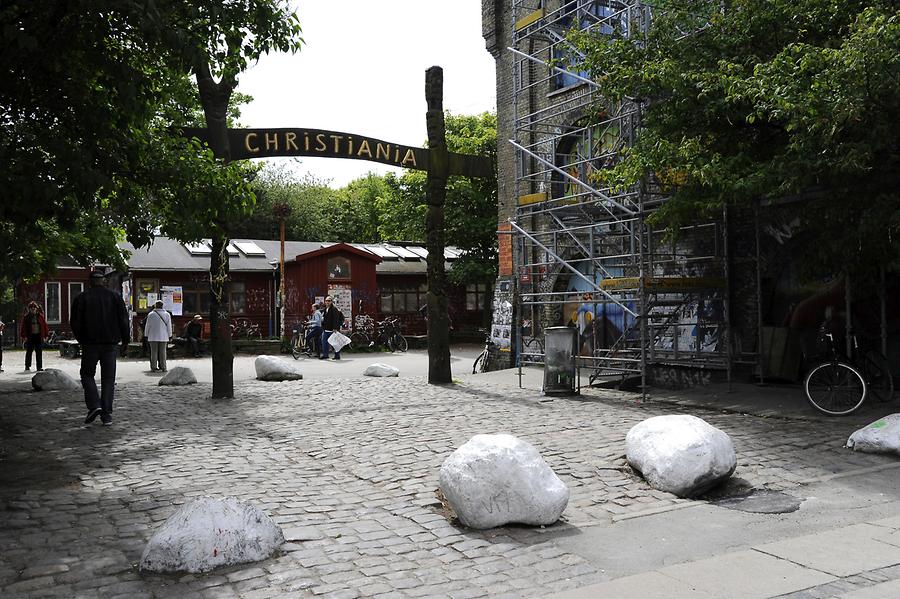Freetown Christiania#

Freetown Christiania, May 2011, © Gerhard Huber, under CC BY-NC 4.0 +Edu
And when a newspaper reported that there was a lot of empty living space there, this article attracted homeless people, hippies and people with an alternative lifestyle who squatted this barracks area. Soon a flourishing drug trade developed. Today the rebellious squatting scene has calmed down. Hard drugs are taboo, but marijuana and hashish are available everywhere. The authorities tolerate this 'social experiment', the 'Freetown Christiania' as an autonomous commune, which even has its own flag and is ruled direct democratically by self-regulation. A so-called plenum meets once a month to discuss common issues such as the budget or the negotiation tactics with the Danish state. Although Christiana is now even a popular tourist attraction, one does not like to be photographed here. The fear of police informers is still circulating. Since 2011, the continuation of the 'Hippie Republic' is assured. The 700 inhabitants bought the 34 hectare area from the city and thus acquired a permanent right of residence.
Als dann noch eine Zeitung berichtete, dass hier viel Wohnraum leer stand, lockte dieser Artikel Obdachlose, Hippies und Alternative an, die das Viertel besetzten. Bald entwickelte sich ein blühender Drogenhandel. Heute hat sich die rebellische Hausbesetzerszene beruhigt. Harte Drogen sind tabu. Marihuana und Haschisch dagegen überall erhältlich. Die Behörden tolerieren dieses „soziale Experiment“, den „Freistaat Christiania“ als autonome Kommune, die sogar über eine eigene Flagge verfügt und sich durch Selbstregulierung basisdemokratisch verwaltet. Ein sogenanntes Plenum tritt einmal monatlich zusammen, um gemeinsame Anliegen wie den Haushaltsplan oder die Verhandlungstaktik mit dem dänischen Staat zu besprechen. Obwohl Christiania mittlerweile sogar eine beliebte Touristenattraktion bildet, hat man es nicht gerne, wenn hier fotografiert wird. Die Angst vor Polizeispitzeln geht immer noch um. Seit 2011 ist der Fortbestand der „Hippie-Republik“ nachhaltig gesichert. Die 700 Einwohner haben das 34 ha große Gebiet der Stadt abgekauft und sich so ein permanentes Wohnrecht erworben.